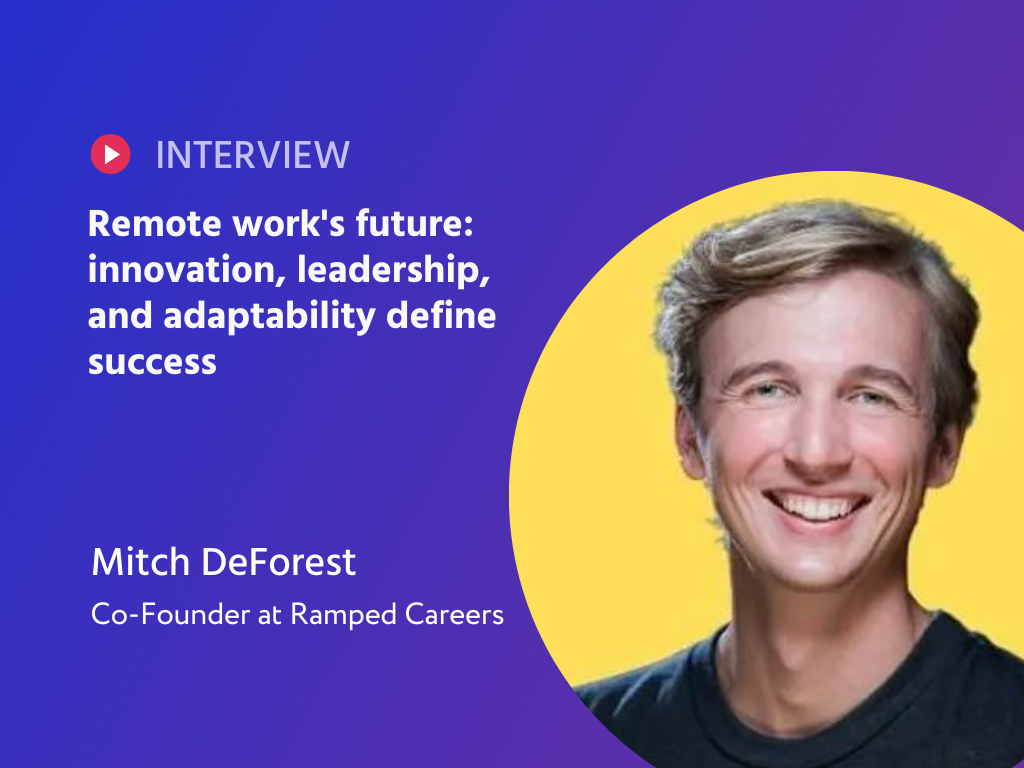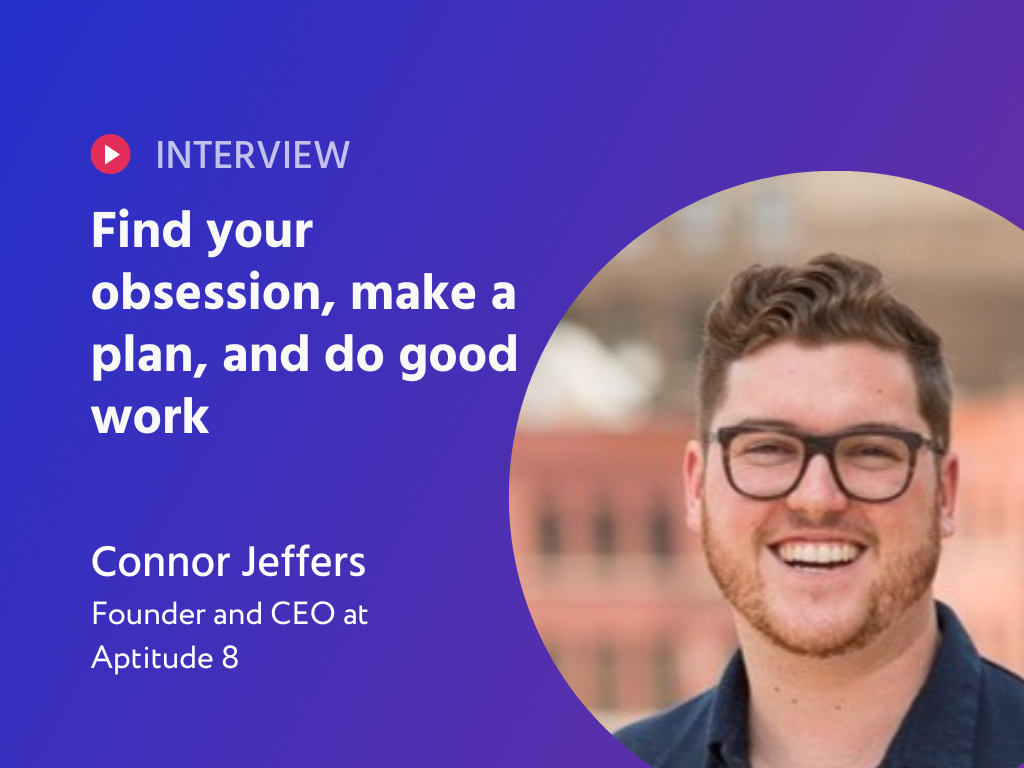In today's edition of Bright Founders Talk, we are thrilled to introduce an entrepreneur who has gamely navigated the high-stakes world of startups: Erik Tengen, the Co-founder and CEO of Oaky. Specializing in revenue management solutions for hotels, Oaky has mastered the art of automated and personalized upselling—delivering the right product, at the right time, to the right guest.
But Tengen's journey to success is anything but straightforward. From his early years as a professional poker player in Sweden to his educational sojourn in Kuala Lumpur, Tengen is a man of many layers. Armed with life lessons from the poker table and the classroom alike, he's applied a unique blend of risk-taking and strategic thinking to build a company that redefines guest experiences in hotels.
Tune in as we dive deep into the fascinating story of how Oaky came to be, and the person behind its innovative vision. This is one interview you won't want to miss.
From Poker to Profit: Erik Tengen’s Wild Ride from a Swedish Card Shark to Upselling Hoteliers
Erik Tengen didn't find his first calling at a board meeting or behind a computer screen, but rather at a poker table. Born and raised in southern Sweden, he spent five years playing poker professionally, a venture that led him to both riches and ruin—multiple times. It’s not your typical precursor to a business career. Yet, in an unpredictable twist of fate, this poker background somehow prepared him for his role today as the CEO of Oaky. "I don't regret anything that I do. As long as you learn something from it," Erik says, summing up his eclectic journey.
I don't regret anything that I do. As long as you learn something from it
Oaky, for those who haven't heard, is a game-changer in the hotel industry. The startup focuses on delivering the perfect upsell to guests at precisely the right moment and the right price. Erik’s software development company may be Amsterdam-based now, but its inception goes back to Kuala Lumpur. Here, a mystery shopping stint led Erik and his future co-founder Lars to ask: Why was an entire industry basing their feedback on 'nonsense intelligence'? So, they pivoted from their initial idea and went into the more lucrative field of automated upselling for hotels.
Choosing a company name wasn’t as strategic as you might think. After brainstorming sessions, someone suggested “oak,” and adding a ‘y’ turned it into ‘Oaky.' Erik smiles as he remembers the time they had to negotiate for the domain name oaky.nl, which they bought from a man who used the website for his golden retriever's pictures. “We gave him 300 euros, and he said, 'I can buy a lot of dog food for that.'” In a life that has been anything but linear, Erik has learned to embrace the spontaneity of it all—from playing poker to revolutionizing the hotel industry one upsell at a time.
Finding His North Star: Erik on Resilience, Spontaneity, and Leadership
Erik is an enigma wrapped in spontaneity, ambition, and yes, maybe a hint of 'Forrest Gump' storm-chasing. Ever tried biking through an Amsterdam downpour? Erik has, and he likens it to the relentless grind of steering a company through uncertainty. "You need to actually embrace every time there's something horrible happening to you," he declares, leaning back as if he's sharing a secret recipe for resilience. "Remember, you cannot have happy without sad; you cannot be successful without failure."
"Happy, ambitious, and spontaneous," Erik describes himself with words that not only make a killer Instagram bio but also encapsulate his approach to both life and business. His spontaneity isn't just about embracing a last-minute plan; it's about falling in love with opportunities and learning quickly whether they fit into his grand scheme. "If I didn't have to be responsible as a CEO, I'd be bouncing from idea to idea like a pinball," he laughs. But when it comes to business, even he admits there needs to be a balance, and he has evolved into a more reflective leader, weighing options and seeking counsel.
While Erik has the charisma of a lone wolf, he vehemently argues that he "barely does anything" alone. He places his faith in team dynamics and the collective wisdom of talented people who are just as passionate and knowledgeable as he is, if not more so. "The most important thing is to hire people who are far greater than you are at some domain knowledge. Together, you can build a really strong team; it's all about the team," Erik insists. Oh, and for those off days when nothing seems to go right? Erik's advice is straightforward: "You only get stressed because you didn't give yourself time to prepare. Prepare, and the stress will disappear." It's a mantra that's as simple as it is enlightening, and coming from a guy who has weathered more than a few storms—literal and metaphorical—it's advice worth heeding.
You only get stressed because you didn't give yourself time to prepare. Prepare, and the stress will disappear
The Art of Behavioral Science and the Power of Timing: An Intimate Chat with Erik, the CEO of Oaky
"Timing is everything. Ask the right question, at the right time, and you've got a game-changer," Erik said, leaning back in his chair with a grin that exuded hard-won wisdom. Who knew that borrowing his dad's car at 18 would be his first unintentional dip into behavioral science? But for Erik, it was a pivotal moment. He discovered that the timing of your request can dramatically shift outcomes, an insight he later applied to the business world, specifically in upselling strategies for hoteliers.
Timing is everything. Ask the right question, at the right time, and you've got a game-changer
However, don't mistake him for some sort of manipulative mastermind. Erik's fascination with behavioral science isn't about control; it's about understanding. "The more you learn about why people do what they do, the better you can influence decision-making. Not just in upselling but in all areas." In essence, understanding human behavior allows Erik to design more effective business strategies, making him not just a CEO but also an accidental psychologist of sorts.
When it comes to team dynamics and the growth of Oaky, Erik is candid about the challenges of transitioning from a triumvirate to a single leader. "Having three people at the top initially worked. But as the company grew, it was like we were defending our own islands. Decision-making slowed down," he admitted. Switching gears to a single CEO model made the team more agile. But what stands out most about Erik is his commitment to fostering a culture where everyone "10x's themselves," as he puts it. For Erik, it's not just about steering the ship; it's about ensuring every member of the crew is empowered to be their best.
Work-Life Harmony and the Mad Conviction of Never Giving Up: An Intimate Chat with Entrepreneur Erik
Erik Tengen is a bit of a contradiction, and he's totally okay with that. Ask him if he'd swap lives with any famous entrepreneur for a day and he leans in, almost sharing how he'd love to crawl into Bill Gates' mind. But then he pulls back. "Nah," he says, "I care too much about life." Erik underscores that he doesn't want success to compromise his roles as a husband and a dad. It's not often you hear an entrepreneur say they want to be like "your average Joe," someone who's got the work-life balance thing nailed while making an impact. And that's why we can't get enough of Erik's refreshing perspective.
I care too much about life
We got to asking about Erik's routine, and it turns out, he's a bona fide morning person. Now, don't be fooled. He wasn't born whistling with the birds at dawn. Fatherhood made him this way. "I had no choice," he laughs. These days, he savors his early starts. At work by 8, out by 5, he ensures he's there to put his kids to bed. "But I get up, I'm at work every morning at eight, I go home every day at five. So I spend at least two-three hours with my kids before they go to bed," Erik shares.
Now, if you're reading this and itching to get a piece of entrepreneurial action, Erik has one gem of advice. "You have to have this almost mad will to never give up," he emphasizes. "If you don't have that conviction that you're never going to stop, then the likelihood [that] you just stop is very big." Erik keeps it real by revealing the not-so-glamorous side of entrepreneurship—like dealing with fickle angel investors and even lawsuits. This guy is a testament to why that relentless 'mad conviction' is non-negotiable for any aspiring mogul. But even amidst the chaos, Erik has his priorities straight: "I want to be very, very successful, but not at the expense of being a bad husband or a bad father."




